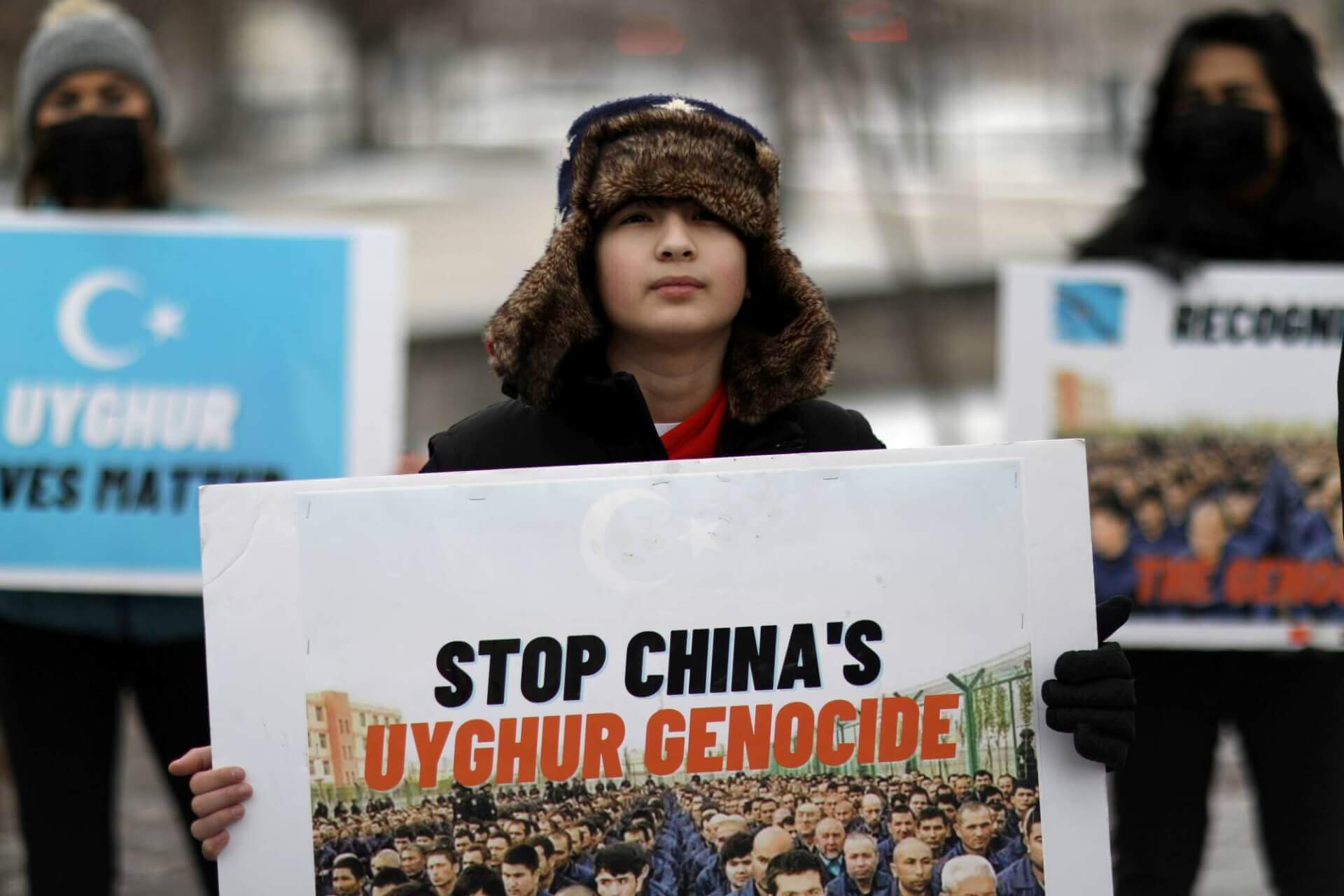The 47-member UN Human Rights Council (UNHRC) on Thursday voted against a proposal to hold a debate on China’s alleged rights abuses against Uyghur Muslims and other ethnic minorities in its western province of Xinjiang.
The proposal was introduced in the UN’s top human rights body by the United Kingdom (UK), Turkey, the United States (US), and other mostly Western nations. 17 member states voted in favour, 19 against, and 11 abstained in a vote to hold a debate at the assembly’s next session in March.
The simple voting procedure was introduced on the topic after several Western countries tried to build up pressure on China following the release of a long-awaited report on the condition of human rights in Xinjiang. Released at the end of August by the office of now-former UN High Commissioner for Human Rights Michelle Bachelet, the report found that “serious human rights violations” had been committed in the region under the pretext of counterterrorism.
@SophieHRW said the council’s action amounted to "an abdication of responsibility and a betrayal of Uyghur victims."@Dolkun_Isa criticized the vote as "a missed opportunity by council members to hold China to the same standard as other countries."
— Uyghur Human Rights Project (@UyghurProject) October 6, 2022
It noted that there were indications that what Beijing describes as vocational training “appear to be discriminatory in nature or effect”. The report added that these training centres were “marked by patterns of torture or other forms of cruel, inhuman or degrading treatment or punishment.” It thus called on the Chinese government to take “urgent action,” noting that the “arbitrary and discriminatory detention” of Uyghurs could constitute crimes against humanity.
Many African nations, as well as Qatar and the United Arab Emirates, voted against the Western-backed proposal. India, Argentina, Brazil, Malaysia, Mexico, and Ukraine, meanwhile, abstained from voting on the issue.
Although India did not explain the reason behind its abstention, “people familiar with the matter” told the Hindustan Times that the move was no surprise, as New Delhi has “traditionally voted against or abstained on such country-specific resolutions” at the UNHRC. Analysts argued that India may have abstained to prevent China from voting against it on similar issues, such as alleged human rights abuses in Kashmir and against minorities.
#IPAC statement on the rejection of debate on the situation of human rights in the Uyghur Region at the @unhrcpr.
— Inter-Parliamentary Alliance on China (@ipacglobal) October 6, 2022
By refusing further discussion on this report, the PRC government is demonstrating its fear that its brutal repression of the Uyghurs will be further exposed. pic.twitter.com/3l4jryvsP8
However, China has not reciprocated India’s act of diplomacy. Last month, it blocked a joint effort by India and the US in the United Nations Security Council (UNSC) to designate Lashkar-e-Taiba (LeT) commander Sajid Mir as a ‘global terrorist’ under the UN 1267 sanctions list.
Moreover, it was not the first time China had blocked efforts to sanction Pakistan-based terrorists. In June and July, China thwarted attempts by India and the US to place LeT Deputy Chief Abdur Rahman Makki and Jaish-e-Mohammad (JeM) deputy chief Rauf Azhar on the UNSC’s sanctions list.
On both occasions, Beijing halted the procedure and delayed it by six months by imposing a “technical hold.” As a permanent member, China can delay the process for another six months, following which it has the option of either accepting or permanently blocking the proposal.
This is a deep shame on the @UNHumanRights Council. Nation States, including Qatar, Indonesia, & others made statements of supposed concern over their Muslim brothers & sisters while stripping them of the mechanisms of justice.
— Omer Kanat (@OmerKanat1) October 6, 2022
We must press onward to ensure accountability. https://t.co/3cDiziFeee
China also blocked the designation of JeM chief Masood Azhar in the sanctions list back in 2018, demanding more information before introducing the measures. However, it finally gave in in 2019 after accepting evidence of his links to Al Qaeda.
India’s permanent representative at the UN, Ruchira Kamboj, has expressed dismay that “genuine and evidence-based listing proposals” had been blocked, which she said was evidence of China’s “continuing politicisation” of the sanctions regime.
China has also been heavily reluctant to put its weight behind India’s longstanding bid to become a permanent member of the UNSC.
Meanwhile, commenting on the latest vote on Xinjiang, the China director at Human Rights Watch, Sophie Richardson, remarked in a statement that Chinese authorities “have made every effort to suppress the high commissioner’s report and prevent discussion of its contents.”
She added that “if this approach prevails, it would undermine the institutional integrity of the Human Rights Council by placing the human rights situation in one country uniquely beyond international scrutiny.” “The council is explicitly mandated to discuss human rights violations committed by any state. To allow a single government to escape scrutiny for some of the worst violations under international law will not only mean failing victims and survivors, but also enabling abusers and creating a dangerous double standard,” Richardson asserted.

